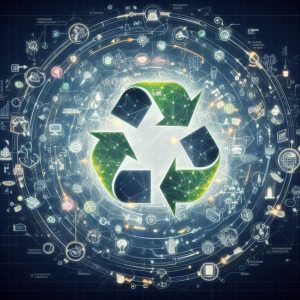The Pros and Cons of Embracing the Circular Economy: Balancing Long-Term Benefits and Short-Term Challenges
Neither a waste nor a recycling economy, the circular economy is a model of economy that combines a set of practices, organised according to their impacts, with the aim of maximising energy and materials.
The circular economy offers many non-negotiable benefits and has a very positive impact on the planet and its people.
- Reducing greenhouse gas emissions and pollution, thus contributing to the fight against climate change.
- Reducing the consumption of natural resources and energy, thus preserving ecosystems and limiting the impact on the environment.
- Creating green and local jobs, especially in the field of waste collection and treatment.
- Stimulating innovation in the design of sustainable and reusable products.
- Reducing production costs through the reuse of materials and products, as well as reducing waste and processing costs.
However, the circular economy also has some drawbacks, such as:
- High initial costs for companies and communities to set up waste collection, sorting and treatment systems.
- Lack of coordination and regulation between the different actors involved in the circular economy, which can lead to difficulties in setting up supply and waste recovery chains.
- Lack of awareness and information among the general public on the challenges of the circular economy, as well as on the actions to be implemented to contribute to it.
- Technical challenges related to the reuse and recycling of certain materials, which may be polluting or difficult to process.
Despite these major challenges, the circular economy remains an important solution to our society’s environmental and economic challenges. Long-term benefits, such as conservation of natural resources and reduced production costs, can significantly outweigh the initial costs and short-term challenges.
